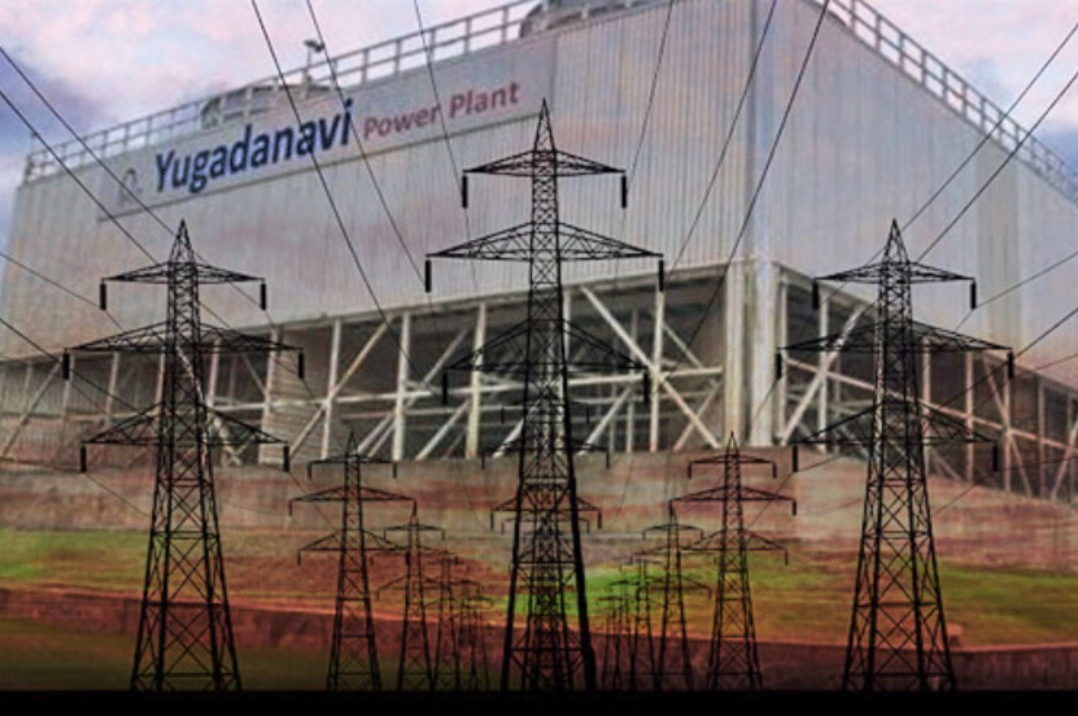By Sarasi Wijeratne
Hundreds of workers affiliated with trade unions of the Ceylon Electricity Board will picket tomorrow at several key locations in Colomboin protest against a proposed move by the government to give a US based company exclusive rights to supply Liquefied Natural Gas. Trade unions of the Sri Lanka Ports Authority and the Ceylon Petroleum Corporation will also join the picket.
The Ceylon Electricity Board (CEB) trade unions will start their picket at 12 noon outside their headquarters in Colombo Fort. There will also be pickets near the Khan clock tower which is close to the Sri Lanka Ports Authority (SLPA) and in Sapugaskanda and Kolonnawa where the Ceylon Petroleum Corporation (CPC) has its oil refineries.
CEB employees from faraway Jaffna, Batticaloaand Ampara will join the picket near their headquarters. There are about 35 CEB trade unions and except for a couple, the majority will be taking part in the picket.
‘This symbolic protest will be the start of long–term trade union action’, said DhammikaWimalaratne, the joint secretary of the Ceylon Electricity Board Engineers’ Union which will be giving leadership to the picket. They have about 800 members. ‘We will make sure the power supply will not be interrupted and that maintenance and operations are attended to by staff. We don’t expect any sabotage’.
The General Manager of the CEB issued a circular yesterday cancelling the leave of all employees. Wimalaratne said he didn’t expect the ruling to affect many employees because it will begin at 12 noon which is during the lunch hour and others who will join will be shift workers.
‘CEB employees, especially those who live out of Colombo, will be applying for sick leave to come for the picket’, said Ranjan Jayalal the convenor of the Ceylon Electricity Board Employees’ Union who confirmed there won’t be interruptions to the power supply. ‘There could be delays to restore power if disruptions occur due to natural reasons such as branches of trees falling on power lines or delays with employees getting back to their work stations’.
Talk of trade union action has been in the pipeline for some time now even though itsexact details were not known. There was panic buying of candles, generators and other sources of lighting as speculation and concern mounted among the public of a nation – wide blackout.
‘We are a professional trade union and we don’tresort to industrial action normally’, says Wimalaratne. ‘If our engineers stop work for even half an hour to one hour the electricity supply will stall. We assess the situation carefully. It will not be in the best interests of the country otherwise’.
In September the government sold 40 percent of the Treasury share in the Yugadhanavi power station in Kerawalapitiya to New Fortress Energy for $250 million. Opposition MPs claim the transfer was done surreptitiously in the middle of the night between the government and a representative of New Fortress. Energy sector trade unions, opposition parliamentarians and even the government’s own MPs are opposing the sale which they see as a risk to the country’s energy security. Only a handful of government MPs and government servants, especially those in the Finance Ministry, seem to be aware of the details of an initial framework agreement which was signed earlier this year in July. What they surmise is that the basis of the agreement is a cabinet paper which was also hastily put before the Cabinet for its approval.
According to Wimalaratne the main issue here is that in lieu of buying the shares New Fortress gets the right to be the sole supplier of LNG to this country for the next five years at a cost of $1500 million. ‘Because of the Take or Pay terms and conditions the monetary loss to the country will be $600 million. To top it all the sale happened when the CEB had called for acompetitive international tender for the supply of LNG’.
The trade unions have three demands. They want the procurement of LNG, its terminal and pipelines to be kept under state control, for the CEB to be allowed to continue with the tender process and for LNG supply rights not to be in the control of one entity. There are legislative and policy barriers that require them to be streamlined through a competitive bidding procedure for transparency and accountability.
‘Leaving the supply of LNG in the hands of one entity is unfavourable to the country and is against the provisions of the Sri Lanka Electricity Act No 20 of 2009 and the National Energy Policy, ‘ points out Wimalaratne . ‘There is also a conflict of interest here. While New Fortress will be holding the majority share of Yugadhanavi, it will also be supplying LNG to power it’.
The last time energy sector trade unions resorted to similar industrial action, which went on for several days, was in 1996 when the government decided to sell a percentage of shares the CEB held in the Lanka Electricity Company.





